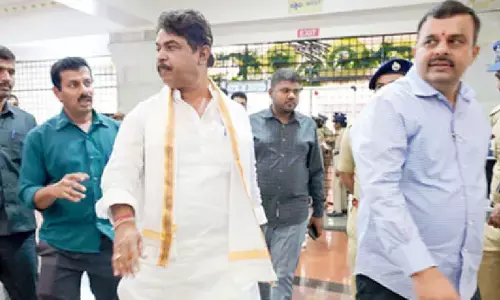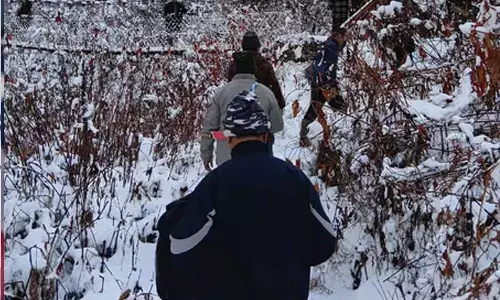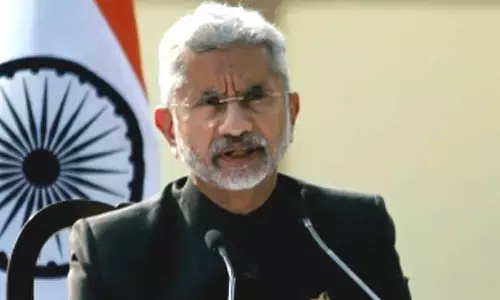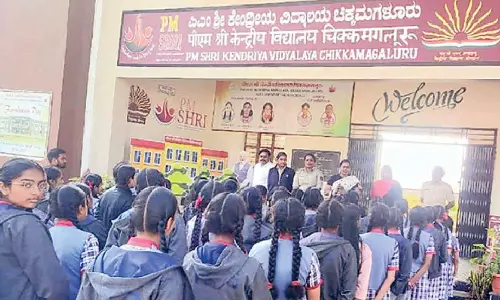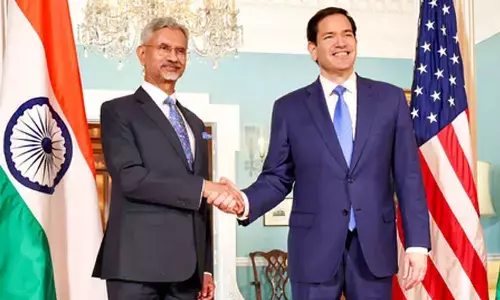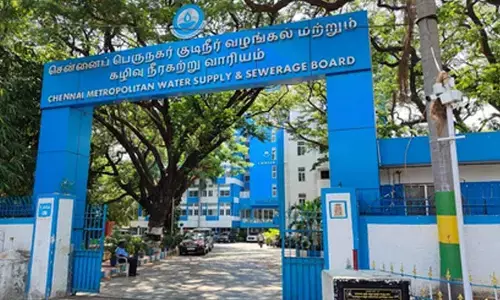3-year-old Iraqi girl saves elder brother by donating bone marrow
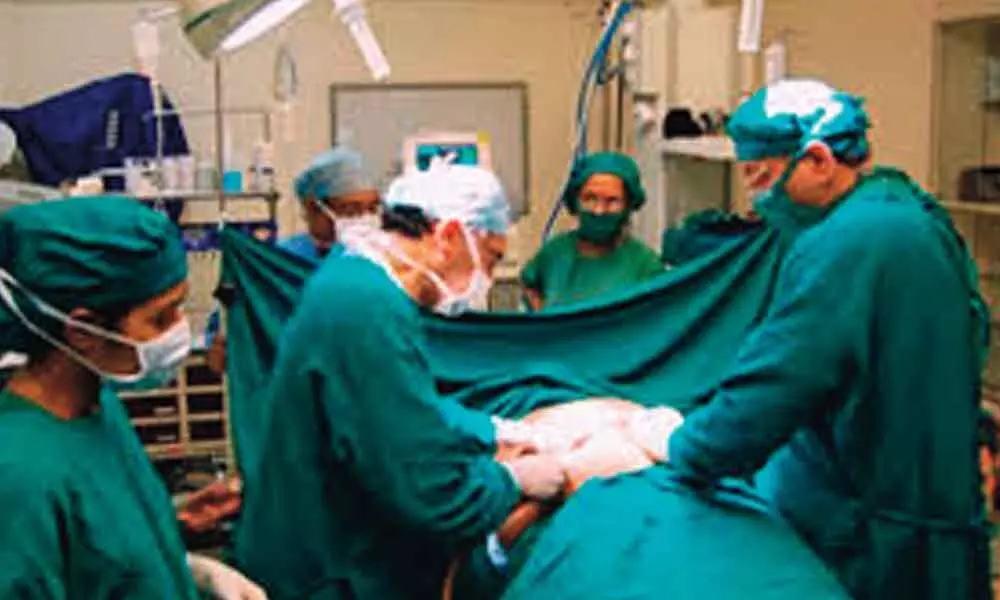
3-year-old Iraqi girl saves elder brother by donating bone marrow
Few months back it was a known case of severe sickle cell disease for Ahmed, 18-year-old boy from Iraq, who suffered repeated bouts of pain.
Bengaluru: Few months back it was a known case of severe sickle cell disease for Ahmed, 18-year-old boy from Iraq, who suffered repeated bouts of pain. He had severe symptomatic anaemia needing frequent blood transfusions and jaundice. He had undergone splenectomy (surgical procedure that partially or completely removes the spleen) in Iraq and though was being treated with optimal medical care he suffered greatly because of his illness.
He had undergone splenectomy in his native country and was referred to the Manipal Hospitals in Bengaluru for bone marrow transplantation.
"Although sickle cell disease is an inherited disease, not all patients have similar symptoms or similar disease outcomes. However, there are a certain group of patients with the severe form of sickle cell disease that requires allogeneic bone marrow transplantation." said Dr Mallikarjun Kalashetty, Consultant - Haematology, Haemato-Oncology and Bone Marrow Transplantation, Manipal Hospitals, Old Airport Road . Kalashetty stated that the "best donors for such patients are the human leukocyte antigen (HLA) Matched siblings who are normal or have only a minor form of haemoglobinopathy or thalassaemia ( Thalassaemia trait or sickle cell trait)".
Apart from the obvious language barrier, this case posed a far more complex challenge for the expert medical team at the Manipal Hospitals, because of the tender age of the donor, the patient's younger sister.
"The donor was a 3-year old child, weighed only 18 kg and had a blood volume of about 1.3 litres. However, we had to process about 8-10 litres of blood. That was indeed a problem for us," said Dr C. Shivaram, Consultant - Transfusion Medicine Manipal Hospitals, Old Airport Road, Bangalore.
"The first challenge was the low volume of blood of the donor compared to our large volume requirement. In view of her age the child had to be sedated to elicit co-operation during apheresis (extracting whole blood from and separating the components) in multiple sittings and preserve the stem cells through cryopreservation. We decided to perform this procedure in our pediatric ICU as it is well-equipped to handle any complications". said Dr Shivaram, while pointing out the initial challenges.
"To counter the low volume of blood going into the apheresis machine, we filled the dead spaces with compatible RBC, and to reduce the fluid overload, we determined and monitored the volume of the fluid going into the body of the child. To prevent citrate toxicity, cardiac monitoring, and ECG tracing was implemented. Advanced equipment for cryo-preservation like control rate deep freezer allowed us to preserve the stem cells effectively. Our more than 20-years of experience in bone marrow transplantation came to our rescue while handling such a critical case". added Dr Shivaram while sharing his thoughts on the benefit of clinical experience in handling complicated cases.
Ahmed finally underwent allogeneic bone marrow transplantation successfully and won over his sickle cell disease.
"He did have a few complications post-transplantation like mucositis, febrile neutropenia, viral reactivations, which were successfully managed. Mr Ahmed is now several months post Bone Marrow Transplantation and his symptoms have disappeared, he has not needed any blood transfusion," said Dr Mallikarjun Kalashetty.








